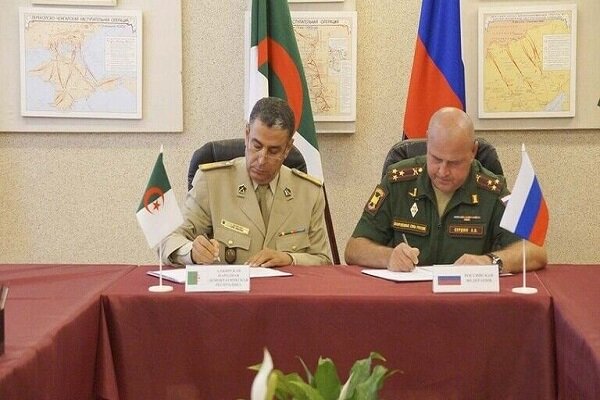An expert on Russia affairs stating that Algeria’s weaponry structure relies on Russian technology and this has caused hardware dependence on Russia, said: Due to Europe’s dependence on Algerian energy, the embargo on that country should be with the agreement and cooperation of European partners and Washington should convince Brussels for such sanctions and it is likely to cause differences of opinion among them and also disagreements within the European Union.
Speaking in an interview with the website of the Strategic Council on Foreign Relations, Afifeh Abedi, referred to the request of the US Congress to impose sanctions on Algeria for the purchase of Sukhoi Su-27 fighter jets worth more than 7 billion dollars from Russia and added: Russia has tried to improve its relations with African countries, including Algeria, as one of the important countries in the region and one of the world’s energy suppliers. Algeria is one of the biggest buyers of Russian weapons, and the background of relationship between the two countries dates back to the time of the Soviet Union.
Saying that in the past two decades, Russia has tried to revive the influence of the Soviet Union in Algeria, she added: Even Russia in 2007, by cancelling part of Algeria’s financial debt, paved the way for new arms contracts, and thus we witnessed that in the past decade, Algeria was one of the biggest buyers of Russian weapons and according to some statistics, recently it is considered as the third largest buyer of Russian weapons.
Possibility for boycotting Algeria
The analyst of Russian affairs continued: Considering the tensions that exist in relations between Moscow and the West, the growing trend of relations between Russia and Algeria contradicts the goals of the West to isolate Russia politically and enclose Russia with economic sanctions. For this reason and considering that Algeria is one of the largest energy suppliers in the world, the West will definitely try to prevent the expansion and deepening of relations between the two countries with various means.
Stating that more arms contracts provide more financial resources to Russia and hinder the goals of the West and the United States to put pressure on Russia, Abedi said: The will of the United States to punish Algeria regarding the arms agreement with Russia will be affected by various factors. On the one hand, following Europe’s efforts to reduce energy and gas dependence on Russia, Algeria has become one of the alternative sources, therefore the embargo on Algeria must be done with the agreement and cooperation of European partners, and Washington should convince Brussels for such sanctions, and it is likely to cause differences of opinion among them as well as disagreements within the European Union.
Stating that Algeria is facing problems in the face of the pressures by the United States, he recalled: Algeria’s weaponry structure relies on Russian technology and this issue has caused hardware dependence on Russia. In fact, Algeria has concerns over the consequences of creating tension in its relations with Moscow. In addition, the country has also criticized the positions of the United States towards issues of its domestic policy.
At the same time, the researcher of the Research Institute of the Expediency Council, referring to the concern expressed by 27 congressmen led by “Lisa McLean”, the Republican representative of the Congress, regarding the expansion of relations between Algeria and Russia and the request to impose sanctions against Algeria, said: Before, another Congress representative had asked “Blinken” to impose sanctions against Algeria. Therefore, there is a possibility of imposing sanctions by the United States against Algeria; but the level of those sanctions and their application, in the short term and at least in the coming autumn and winter, considering the energy shock in Europe, will be as such that the sanctions do not hinder the energy cooperation between Algeria and Europe.
Russia’s attempt to evade sanctions
Stating that Russia is trying to use this situation as an opportunity to bypass sanctions, Abedi noted that since 2014, due to the sanctions that started against Russia, Russia’s efforts to increase relations with African countries, especially Algeria, have increased and the number of contracts was concluded between the two countries grew significantly.
She continued: One of Russia’s motivations for promoting economic diplomacy with Algeria has been to bypass sanctions and make them ineffective. Meanwhile, Russia seeks to increase its partners in the energy market to control global energy policies, and in this regard, it will certainly try to prevent Algeria’s will from becoming weak under the pressures of the United States.
Regarding the consequences of receiving Sukhoi 27 fighter jets by Algeria, as well as the criticisms of competitors and other African Union member states regarding this issue, the expert on Russia affairs said: One of the tools of the United States to put pressure on Algeria is to provoke its neighbors to declare a position on weaponry contracts with Russia, but considering Algeria’s military efforts in the past years to increase its military capabilities, the country is considered as one of the military powers in the region, and American pressures will not be very effective in reducing cooperation between Russia and Algeria.










0 Comments